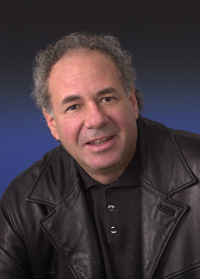“I was afraid the plane would be late
And I thought of me up there in your seat,
How much I would fidget and twist the skin
On the back of my hand. And I thought
I should have paid your first-class fare,
That you deserved one for having come so far
In answering me with yourself in the flesh.
It is good to see you and hold you close,
To embrace as we do. Your eyes are clear
And your color is good. Something has been
Always vital in you, a veneer of health
Like the skin of a gorgeous apple. I hope
Your mother is well and your father has begun
To feed himself again. I have these Edenic
Memories of them, your mother carving
The roast, swimming in her element, your father
Miraculously switching from scotch to gin.
Sometimes during grandiose imaginings
Of my death, I pretend I am being devoured
There in the bosom with a good Cabernet,
Your family remarking on the qualities
I have brought to the sauce. Don’t look that way.
The line for the toll is always a bore, watching
The solitary drivers or the anxious passengers
Waiting for the brief moment of their greeting,
The payment, the bell, the rising of the gate.
Then on to the city that now seems worth it.
I see that you have brought me a gift. I will wait
To open it later, perhaps after you leave it
Will tell me how I should have received you,
Whether it will sit on the mantle like a reproach.
I have fixed you up a corner of my living room
And placed a chair in good light near the window
Where you can read or watch the workers
Taking down the building across the street.
I know that low level of distraction you enjoy.
I think we will be able to get our work done
And I will give you what privacy I have.
There is a person who visits me sometimes
When the bars close. I lie back on the white rock
Of my bed, my hands behind my neck as if bound.
My angel is an eagle with the face of leather,
An idea that engenders from my classical education
And the study I have made of personal advertisements.
In my library is a picture of the drawn and quartered,
The handsome limbs stacked like cordwood.
It is called The Hundred Pieces and each time I look
I find one more thing, but never have I been able
To reach that numerical perfection, the exact
Total unaccountable, just as how I have failed
To reason how the body stays alive through each
Subtraction, yet through it all seems to the observer
The head on its post of spine appears to be smiling.
Like the way you must feel after a day of traveling,
Leaving a little of yourself here and there as folks do?”

Stuart Dischell is the author of Children with Enemies (University of Chicago Press, 2017), as well as Good Hope Road, a 1991 National Poetry Series Selection (Viking, 1993); Evenings & Avenues (Penguin, 1996); Dig Safe (Penguin, 2003); and Backwards Days (Penguin, 2007). Dischell’s poems have been published in journals such as The Atlantic, The New Republic, AGNI, Slate, The Kenyon Review, and in anthologies including Essential Pleasures, Hammer and Blaze, The Pushcart Prize, and Good Poems. A recipient of awards from the National Endowment for the Arts, the North Carolina Arts Council, and the John Simon Guggenheim Foundation, he teaches in the MFA program in creative writing at University of North Carolina Greensboro. He is a contributing editor of AGNI. (updated 4/2019)
Dischell’s first full-length collection Good Hope Road was reviewed in AGNI 40 by Joseph Lease.
Dischell’s collection Evenings & Avenues was reviewed in AGNI 46 by George Weld.
